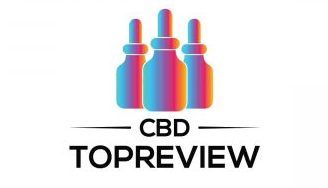29 July 2023. Authored by Isabella Green. Expected time required for comprehensive reading: 11 minutes.
Here’s the 6-point Outline for the Blog Post on Cbd Debunked: the Truth about Whether Cannabidiol Kills Brain Cells:
CBD or cannabidiol has gained popularity in recent years as a promising cure for many ailments. Despite the government’s efforts to curb the production and distribution of cannabis, studies have proven that CBD, a non-psychoactive compound, has many health benefits. In this article, we will debunk the myth that CBD kills brain cells.
People often confuse CBD with THC, which is the psychoactive compound present in marijuana. Unlike THC, CBD has no psychoactive effects, which means it will not make you high. THC binds to cannabinoid receptors in the brain, which leads to cell damage, but CBD does not have such effects. CBD is said to interact with other receptors in the body, which ultimately improves brain function and can provide relief from anxiety and depression. Click here to know more about which CBD oil you should take and why.
Cbd Vs Thc – How They Differ and Why It Matters
CBD and THC, both are compounds present in the cannabis plant, but they differ in their effects on the mind and body. THC has psychoactive properties, which means it can cause euphoria, and it also causes cell damage in the brain. The use of THC is associated with long-term negative effects on brain health. On the other hand, CBD has no psychoactive effects and has several health benefits.
When consumed, THC binds to the receptors in the brain, which can lead to cell damage. However, CBD binds to other receptors, which results in reduced inflammation and neuroprotection. If you are looking for a natural and safe way to improve overall health, you should choose CBD over THC. Click here to learn which type of CBD oil is best for you.
Understanding How Cbd Affects the Brain and Body
When it comes to understanding how CBD affects the brain and body, it’s essential to know that our bodies contain an endocannabinoid system (ECS) that interacts with CBD. The ECS plays a crucial role in regulating many important functions such as sleep, mood, appetite, and immune response. When CBD enters the body, it interacts with the ECS, which leads to various health benefits.
Some of the benefits include reduced inflammation, pain relief, improved brain function, and a sense of relaxation. CBD has also been shown to help manage symptoms of anxiety, depression, and PTSD. However, it’s important to note that CBD affects each person differently, and the effectiveness of CBD may depend on the individual’s unique biochemistry. If you’re curious about the benefits of using a CBD nasal inhaler for quick and effective relief, check out this link to learn more!
Misconceptions about Cbd and Brain Cell Death
One major misconception about CBD is that it leads to brain cell death. However, this is not true. In fact, studies have shown that CBD may have neuroprotective properties that help prevent brain cell damage. CBD has been found to be effective in treating epilepsy, reducing symptoms associated with Alzheimer’s disease and Parkinson’s disease, and providing relief for patients with chronic pain and inflammation.
Another common misconception is that CBD has psychoactive effects similar to THC, which can lead to addiction and abuse. CBD is non-psychoactive and does not cause a “high.” Instead, it provides therapeutic benefits. There are different types of CBD products available in the market, and choosing the right one can be overwhelming. This link provides a comprehensive guide on which CBD oil is best for you.
Scientific Studies on CBD and Brain Cell Death
CBD, also known as cannabidiol, has been the subject of numerous scientific studies in recent years. One of the most common misconceptions about CBD is that it kills brain cells. However, studies have shown that this is not true. In fact, CBD has been found to be neuroprotective and has been shown to promote neural regeneration.
One study conducted in 2010 found that CBD had a neuroprotective effect on the hippocampus, a part of the brain that plays a crucial role in memory and learning. Another study conducted in 2013 found that CBD had anti-inflammatory and anti-oxidative properties that reduced the cell death associated with traumatic brain injuries.
Other Benefits of CBD to Consider
While much of the focus on CBD has been on its neuroprotective properties, CBD has also been found to have numerous other health benefits. For instance, CBD has been found to be an effective treatment for anxiety and depression. It has also been found to have anti-inflammatory and pain-relieving properties.
If you are considering taking CBD, it is important to do your research and speak with your doctor. While CBD is generally considered safe, it may interact with certain medications. Additionally, some people may experience side effects such as fatigue, diarrhea, or changes in appetite.
To learn more about the benefits and risks of taking CBD, check out this cbd tinnitus shark tank guide.
Isabella Green is a journalist from Philadelphia, PA. She is passionate about writing about politics, social justice, and the environment.










